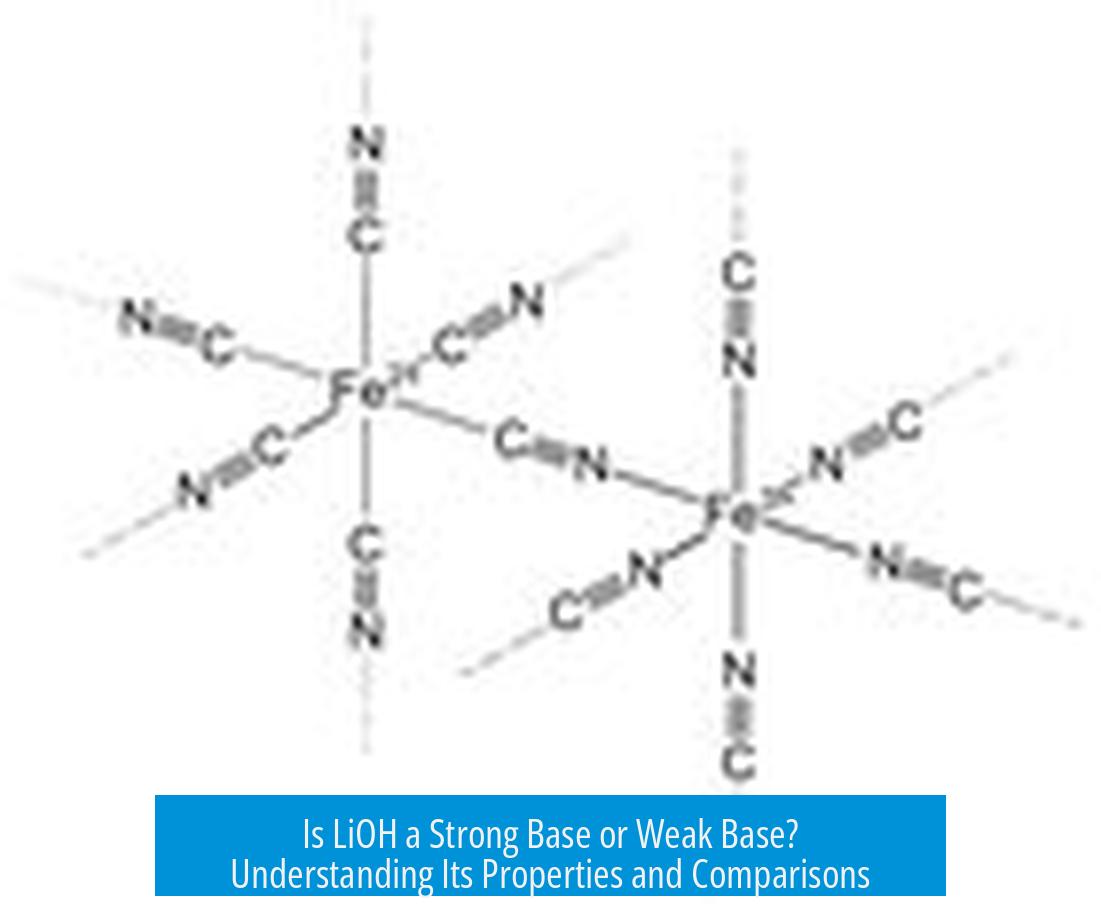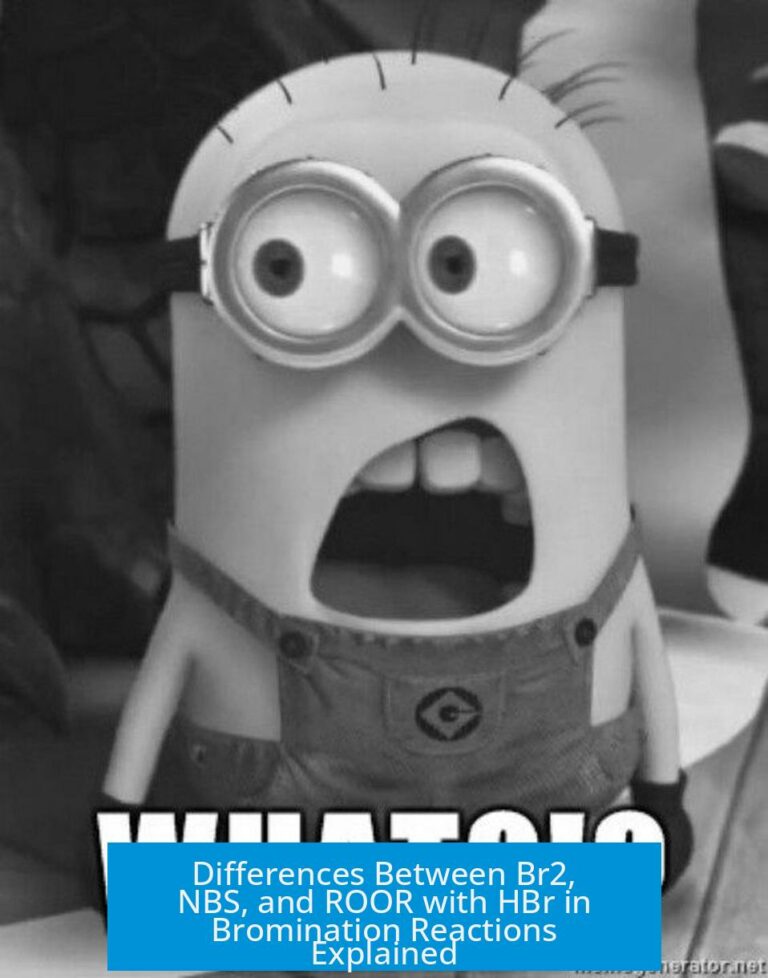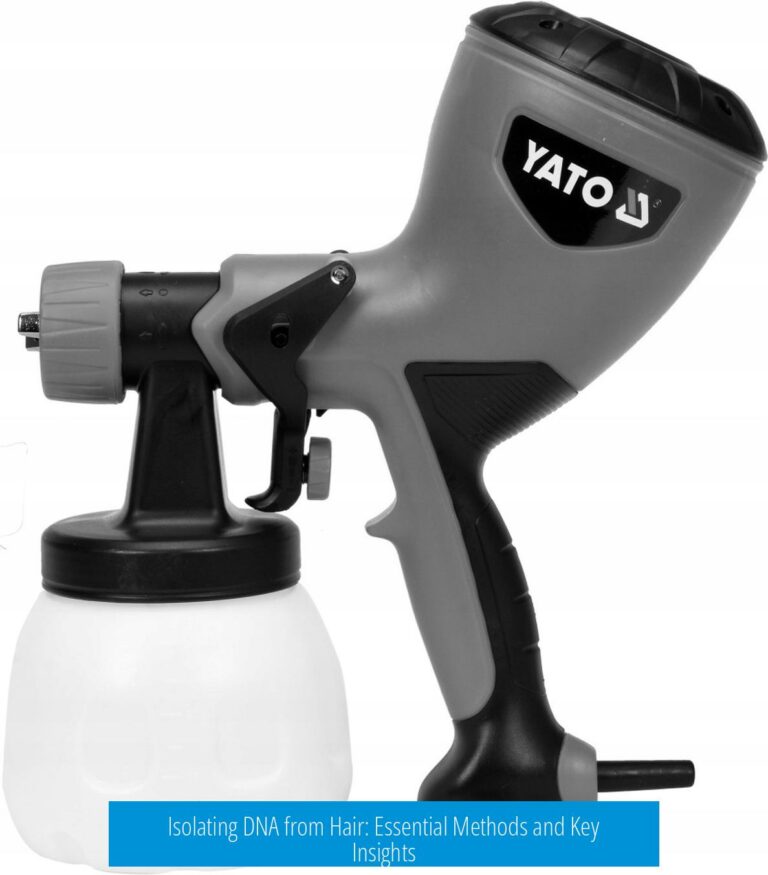Is LiOH a Strong Base or Weak Base?
LiOH (lithium hydroxide) is a strong base. It fully dissociates in aqueous solution, producing lithium ions (Li+) and hydroxide ions (OH−). This complete ionization marks it as a strong base, similar to other alkali metal hydroxides like NaOH and KOH.
Nature of LiOH as a Base
LiOH consists of lithium ions bonded to hydroxide ions. Alkali metal hydroxides typically behave as strong bases. This includes lithium hydroxide, sodium hydroxide, and potassium hydroxide. Their base strength arises from their ionic structure and the presence of OH− ions.
Ionization and Strength
- In water, LiOH dissociates completely: LiOH → Li+ + OH−
- This full dissociation ensures high availability of hydroxide ions.
- Presence of OH− ions drives strong basic behavior.
Comparative Strength Among Alkali Metal Hydroxides
While LiOH is a strong base, it is sometimes considered slightly less strong than NaOH or KOH. This subtle difference relates to the lithium ion’s size and hydration characteristics but does not affect its classification as a strong base.
Hydration Effects and Relative Basic Strength in Aqueous Solution
In aqueous environments, Li+ ions have a higher charge density and form a larger hydration shell compared to Na+ ions. This enhances the dissociation of LiOH, contributing to its strong basicity.
| Alkali Metal Hydroxide | Base Strength | Key Factor |
|---|---|---|
| LiOH | Strong Base | High ion dissociation, large hydration shell of Li+ |
| NaOH | Strong Base | Complete ionization, slightly lower hydration effect |
| KOH | Strong Base | Complete ionization with larger ionic size |
Alkali Earth Metal Hydroxides Context
Unlike alkali metal hydroxides, some alkali earth metal hydroxides such as Ca(OH)2, Sr(OH)2, and Ba(OH)2 show variable solubility and slightly different basic strengths. LiOH remains firmly classified as a strong base among alkali metals.
Key Takeaways
- LiOH is a strong base due to complete dissociation in water.
- It produces Li+ and OH− ions fully, increasing hydroxide availability.
- LiOH’s basicity relates to hydration effects and Li+ charge density.
- It is slightly less strong than NaOH and KOH but still a strong base.
- Alkali earth metal hydroxides behave differently from LiOH.
Is LiOH classified as a strong or weak base?
LiOH is a strong base. It fully ionizes in water into Li⁺ and OH⁻ ions, which makes it a strong base.
How does LiOH’s strength compare to other alkali metal hydroxides?
LiOH is strong but usually considered slightly less strong than NaOH or KOH. However, it still fully dissociates in solution like other alkali metal hydroxides.
Why is LiOH considered stronger in aqueous solutions compared to NaOH?
Li⁺ has a higher charge density and forms a larger hydration shell. This enhances ion dissociation, making LiOH’s basicity in water stronger than NaOH’s.
Does LiOH completely dissociate in water?
Yes. LiOH undergoes complete ionization in water, releasing hydroxide ions that contribute to its strong base behavior.





Leave a Comment